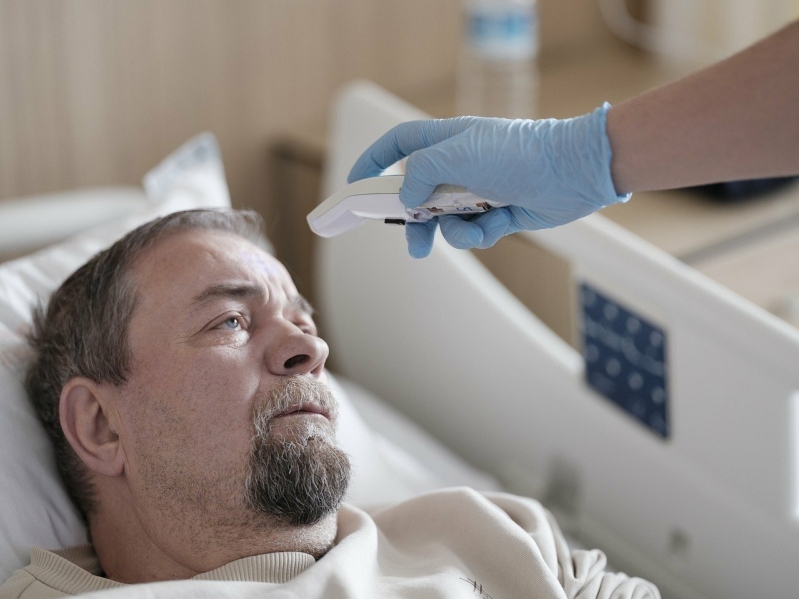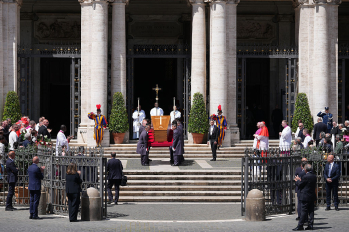
Medical assistance in dying (MAiD) enables a patient to be assisted in ending their life with the help of a medical practitioner. The Canadian Government has stated that such euthanasia scenarios must meet “very specific circumstances and rules” to go ahead.
The federal Criminal Code of Canada states that candidates should meet “specific eligibility criteria” and the medical practitioner has to “satisfy certain safeguards first.”
“Only medical practitioners are permitted to conduct assessments and to provide medical assistance in dying,” say the Canadian Government overview guidelines. “This can be a physician or a nurse practitioner, where provinces and territories allow.”
Two euthanasia methods are allowable in Canada: being given a death-causing substance, such as via an injection, from a medical practitioner or being prescribed a self-administered death drug.
However, the Evangelical Fellowship of Canada (EFC) issued a MAiD update statement at the end of July, lambasting the devastating effect of MAiD on people’s lives. The evangelical body has previously stated that euthanasia “fundamentally devalues human life and normalizes suicide.”
“People in vulnerable situations are ending their lives via MAiD because they feel they have no other choice – and some are pressured to do so,” stated the EFC. “There’s also a growing realization of the very subjective nature of the MAiD eligibility criteria.
“At the same time, there’s a push to expand MAiD even further and to eliminate MAiD-free spaces for patients and doctors who are conscientious objectors. The issues, concerns and questions relating to MAiD in Canada are far from settled.”
A particular concern for the EFC is a push to legalize euthanasia for people who are mentally unwell, which is currently planned to take effect in Canada in March 2027, following delay after the government admitting it was not yet ready. This law can only change if a bill is passed “to walk it back”, according to the EFC.
“That leaves two-and-a-half years to communicate with sitting MPs and future candidates that this law should be repealed. All of the problems with this expansion remain – such as the fact that ‘it is difficult, if not impossible for clinicians to make an accurate prediction about the future for an individual patient,’” stated the EFC, quoting the Canadian Government.
Assisted dying in Canada became legalized in 2016 for terminally unwell patients and then expanded for those with incurable, not just terminal, health conditions in 2021. The legislation to date did not include people solely suffering from mental health issues.
The EFC pointed out that “hopelessness and a belief that things can’t change” are listed as mental issues. Proper mental health care “in a timely and affordable way” is also not available for many Canadians, according to the EFC, which added that there is no clear way to distinguish between “a desire for suicide and a request for MAiD.”
About 12 people each day commit suicide in Canada, according to the government. This compares to figures by Statista showing 13,241 medically assisted deaths in 2022, a large jump from previous data of 5,665 such deaths in 2019. About 86 percent of these people in 2022 cited a loss of ability to engage in meaningful activities and 59 percent lacked adequate control of pain, according to a Statista report in May 2024.
Reasons for assisted dying can be pinpointed to not receiving care or appropriate support to live, rather than a rational choice wanting to die, according to the EFC. A case example given by the EFC is a quadriplegic Quebec man dying by MAiD when he suffered a terrible bed sore after lying on a hospital emergency room stretcher for many days. “It was not his choice,” a social worker advocate reportedly said. “He asked for medical assistance to death as a result of no choice and lack of care.”
Pressures being put on disabled people to end their lives is also highlighted by the EFC, such as the case of Heather Hancock. Hancock suffers from Spastic Cerebral Palsy and in a blog for the Euthansia Prevention Coalition, she credited God with her survival after she was born at 25 weeks gestation with a 98 percent chance of not surviving.
However, she suffered severe pain and fatigue when a doctor at Victoria General Hospital in Victoria suggested she consider MAiD: “I made eye contact with the doctor and said, ‘God gave me life and He is the ONLY One who knows the number of my days. The answer now and from this moment on is NO.’” On another occasion, in another hospital, a nurse told her to “do the right thing and consider MAiD.”
Another case saw a judge in Calgary rule in favor of a 27-year-old woman’s request for MAiD, despite her heartbroken father’s opposition and pleas for his daughter’s life. She suffers from autism and Attention Deficit Hyperactivity Disorder (ADHD). Judge Colin Feasby told the father to take solace in the fact that he did his best to try and persuade her of the value of her life. However, the ruling said it was the woman’s right to choose whether she lived or died. Reports said the father withdrew his objections after his daughter stopped eating or drinking for 14 days in protest at an appeal.
“In a country where we have a national suicide prevention action plan, the discrimination inherent in facilitating MAiD for people with disabilities is clear,” stated the EFC.
The EFC is concerned about the subjective criteria for MAiD: “Canadians we would not expect to be eligible are having their lives ended by MAiD. What is a ‘serious illness’ that makes someone eligible?” Hearing loss and vision loss are listed by the Canadian Government as underlying eligible conditions, according to the EFC.
“When is a person’s death ‘reasonably foreseeable,’ so that fewer safeguards apply, and their life can be ended without delay? That, too, is an elastic term that could be interpreted as a person who has up to a decade to live or someone who isn’t dying but indicates they will stop or refuse life preserving treatment, like taking antibiotics for an infection.”
The EFC is also alarmed about a private member’s bill introduced last month (July 2024) to amend the Criminal Code for assisted dying by Senator Pamela Wallin in the Senate of Canada. It would allow a person to sign advanced written consent for their assisted death even though his or her death is not reasonably foreseen, to be enacted if they lose the capacity to consent at the time.
“The EFC is very concerned about the troubling precedent of ending the life of a person who can't consent. This could end the life of a person who is content in their circumstances. It also leaves the decision about when to end a person’s life and whether the conditions have been met to a doctor or family member, which is not only a significant burden to bear, but one that comes with the possibility of conflict of interest.
“Advance directives for health care can also be complicated to carry out because the circumstances may not align exactly with what is anticipated.
“Advance requests also have implicit discrimination against people with disabilities. They express the idea that life is not worth living without a particular ability or competence. It implies that life is not worth living for others in those circumstances.”
The same bill, if passed, would allow ‘mature minors’ - youths under 18 to be allowed to consent to their assisted deaths. “This would essentially remove the minimum age of eligibility,” commented the EFC.
Lastly, the EFC sees a need for sanctuary for patients and doctors being put under pressure to allow MAiD. Patients are being asked by medical staff “multiple times, even after refusing”, to give permission for a medical practitioner to kill them.
At the same time, doctors and nurses opposed to MAiD are finding “diminishing space” to live out professionally their right to life beliefs. A court case has been launched in British Columbia, for example, against a Catholic faith-based hospital for refusing to assist a woman with stage 4 cervical cancer to die on its premises.
“We firmly believe doctors should not be the ones to suggest MAiD to patients,” stated the EFC. “However, it’s been proposed that doctors be required to bring up MAiD to patients who may be eligible and who are not known to be opposed. All Canadians should have access to high-quality palliative care, not pressure to end their lives.
“This is a weighty topic. The practice and availability of MAiD devalues life and fosters despair. The dangers of abuse are rampant. And we see signs that abuse is occurring.“But we can face these issues with hope and trust in God our Savior. He is the one who gives the gift of life and who brings meaning to our days. It is also God who calls us to care for those who are oppressed and to love our neighbor. Scripture calls us to seek the well-being of our country.”
The EFC called on evangelicals to pray for vulnerable patients, to help in their care as appropriate, and to help campaign for a change in the Canadian laws.





